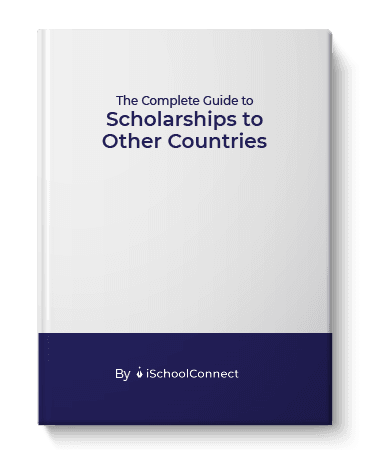Explore By
 Exams
Exams
 Countries
Countries
 Expenses
Expenses
 Universities
Universities

The first thing to know before comprehending the scholarship application process is the stages involved while applying to the institutions. The scholarship process for universities abroad entails a certain series of steps that must all be completed promptly. The following are the various steps of international scholarship application:
Choosing a nation
Choosing a university and/or a program
Attendance at the required tests
Letters of endorsement
Essays and Statements of Purpose Preparation
Obtaining all of the necessary transcripts
Completing the application forms
Notifying institutions of varied exam results
Accepting an offer of admission
Obtaining the necessary admissions cost
Even if you have a certain objective, such as attending a specific institution, applying to at least three universities, even in different parts of the world, is always a good idea.
Examine and study the academic requirements thoroughly to determine your chances of being admitted by the institution. For any queries about the requirements, contact the university's international student department or a consultant for international education.
Most of the time, these facts will be available on the program's website; you must look them up and ensure the dates and rules are updated.
Typically, you may apply immediately through the university's website and submit all needed papers by mail. In certain countries, you may apply using an easy-to-use online platform that helps you to apply to several colleges simultaneously.
A few sites may include additional features like assistance in picking your degree. If you are unsure what to study in the future, such assistance can help streamline many things for you.
Ensure you follow the correct instructions when applying to several colleges concurrently using various online systems.
A motivation letter is required while applying to the courses or colleges. It serves as a cover letter demonstrating your ability to succeed at the university and contains an assessment of your talents and achievements.
Admission to a university or program may need one or more instructor reference letters. You might want to consult your professors for letters of recommendation. Instructors should remember that recommendation letters take time to write and may be asked for letters from many students. Inquire as soon as possible to guarantee they will have time to produce a thorough and persuasive recommendation.
If you want to study abroad and your first language isn't English, you must undertake a language proficiency test. You have to study and prepare for the test depending on your English language competency and the score that the university demands. Make sure to devote time to your preparations.
Also, schedule the language proficiency exam at least one month in advance because each test center conducts the test four times each month, depending on local demand. In case you apply late, there might be chances of the preferred slots getting filled.
You will also be required to submit supporting paperwork. The files you'll need will vary depending on your university, but here's a list of things you could require:
Qualifications and transcripts from secondary school
Letters of recommendation/references
Personal statement/essay
English language certifications
Results of the admissions exam
Photocopies of passports and identification cards
For international students, certain nations have unique criteria or laws. Suppose you are from the European Union and apply to a university in another EU nation. In that case, the scholarship application process will be hassle-free, and the chances of receiving a quicker response will increase.
In the UK, most institutions only accept your scholarship application for a Bachelor's degree through the UCAS system. For a postgraduate program, submit all documentation through the university's website or the UK PASS system.
You must complete a pre-application process to confirm your former studies' eligibility standards in Italy, Spain, Portugal, and Germany. Generally, students receive information about the chances of admission from either the embassy or consulate or the university's foreign office.
Most EEA nationals need an admission examination, which may be a written test. Depending on your preference, you may also be required to go through tests or present a portfolio.
Swiss universities do not recognize online education credentials, night school certificates, or part-time high school diplomas. It means you'll have to pass the maturity examination, the Swiss counterpart of the international baccalaureate.
Q1. Which countries offer full scholarships?
Answer - Scholarships in Germany, Norway, and Finland offer full scholarships.
Q2. Do you have to pay back scholarships?
Answer - No, you do not have to pay back scholarships
Q3. What are the two types of scholarships?
Answer - There are two kinds of scholarships -private and institutional.
Study in USA
Study in Canada
Study in Australia
Study in UK
Study in Germany
Study in Ireland

Updated on Jan 22 ,2024

Updated on Dec 25 ,2023

Updated on Nov 21 ,2023
USD 150,000